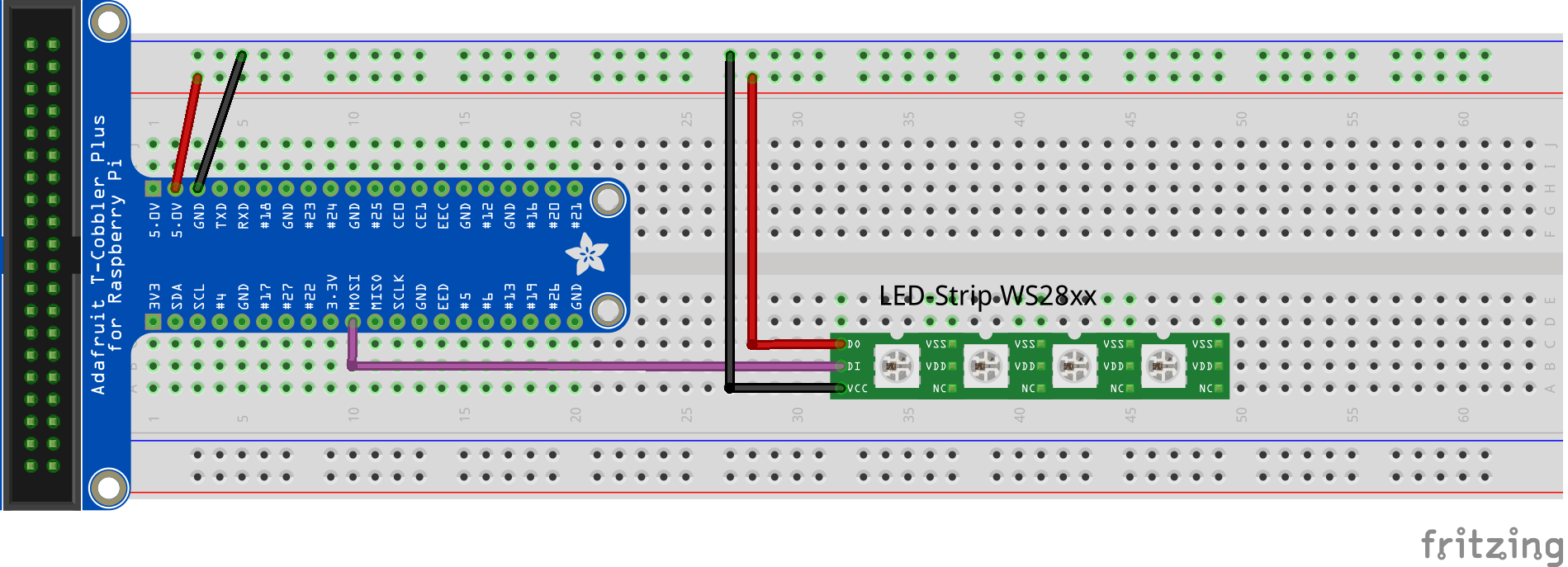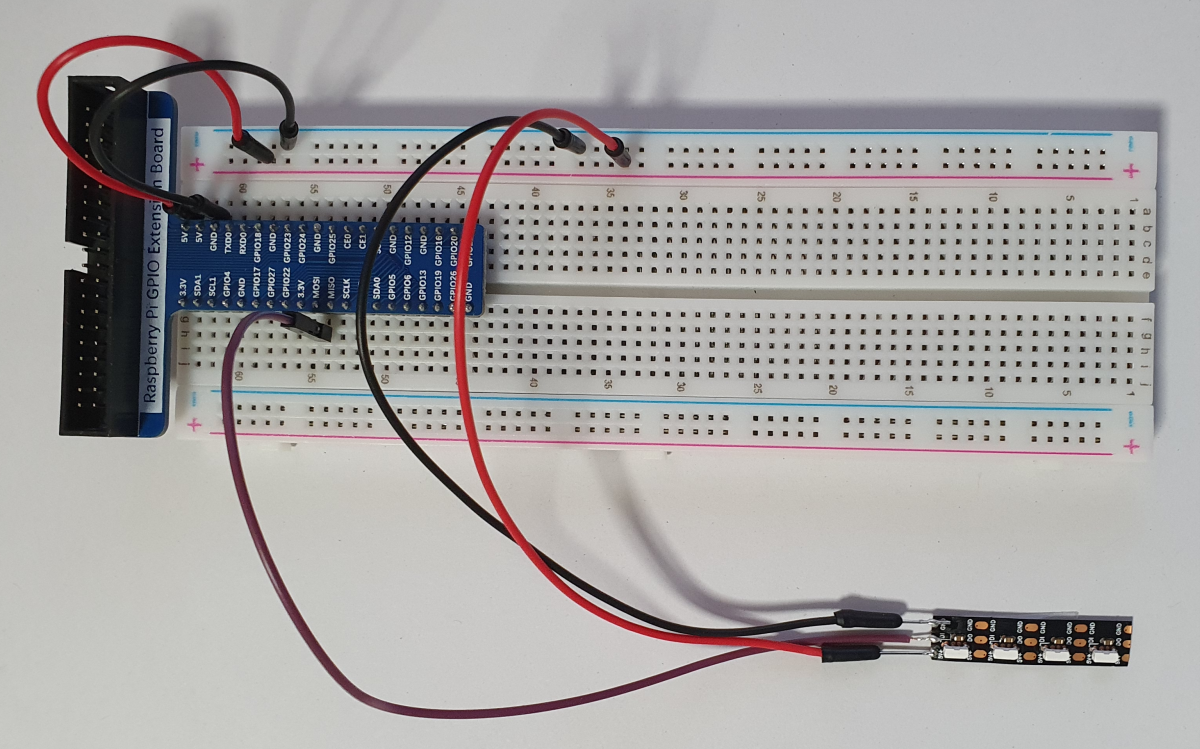LED Strip
Although this example is still valid, an easier approach for the control of an array of LEDs can be achieved with the PixelBlaze Output Expander as described here.
Description
The LedStrip is a template class, that you can use in your own Java-project. You can take a LED Strip with the WS28xx-chip set.
The Template Class gives you the option to set the LED’s of the strip to a desired RGB-Color. If you have many strips, you can use the LEDMatrix
Make sure to check if SPI is enabled in your RaspberryPI. Check the SPI Address. Default is “SPI0 MOSI” Pin (#19).
Layout

Code
A simple example on how to use the LEDStrip-Class from the Hardware-Catalog:
System.out.println("LED strip app started ...");
// Initialize the RGB
int pixels = 4;
final LedStrip ledStrip = new LedStrip(pi4j, pixels, 0.5);
//set them all off, so nothing is shining
System.out.println("Starting with setting all leds off");
ledStrip.allOff();
System.out.println("setting the LEDs to RED");
ledStrip.setStripColor(LedStrip.PixelColor.RED);
ledStrip.render();
delay(3000);
System.out.println("setting the LEDs to Light Blue");
ledStrip.setStripColor(LedStrip.PixelColor.LIGHT_BLUE);
ledStrip.render();
delay(3000);
System.out.println("setting the first led to Purple");
ledStrip.setPixelColor(0, LedStrip.PixelColor.PURPLE);
ledStrip.render();
delay(3000);
System.out.println("setting the brightness to full and just show the first led as White");
ledStrip.allOff();
ledStrip.setBrightness(1);
ledStrip.setPixelColor(0, LedStrip.PixelColor.WHITE);
ledStrip.render();
delay(3000);
//finishing and closing
ledStrip.close();
System.out.println("closing the app");
System.out.println("Color "+ ledStrip.getPixelColor(0));
System.out.println("LED strip app done.");
Further project ideas
- A suit with LED-Strips sewn on, on which different animations can run.
- A LED-strip which can be used as a backlight of a screen. The color and brightness can change to the volume and mood of the displayed images.

